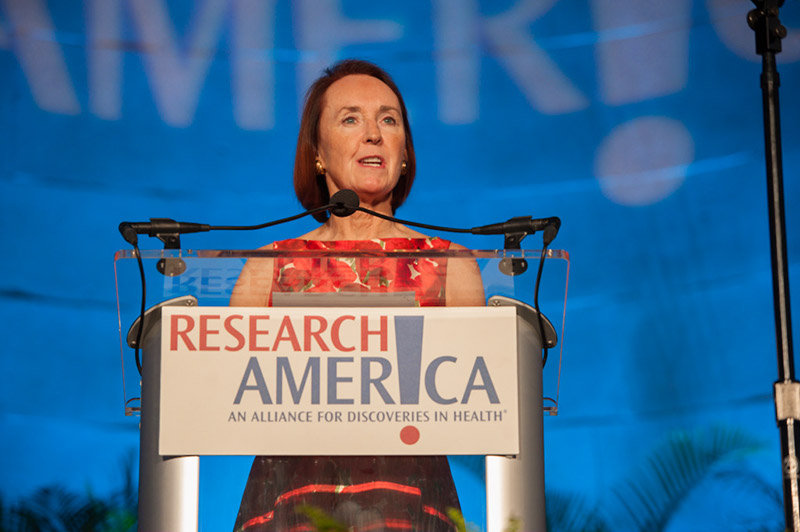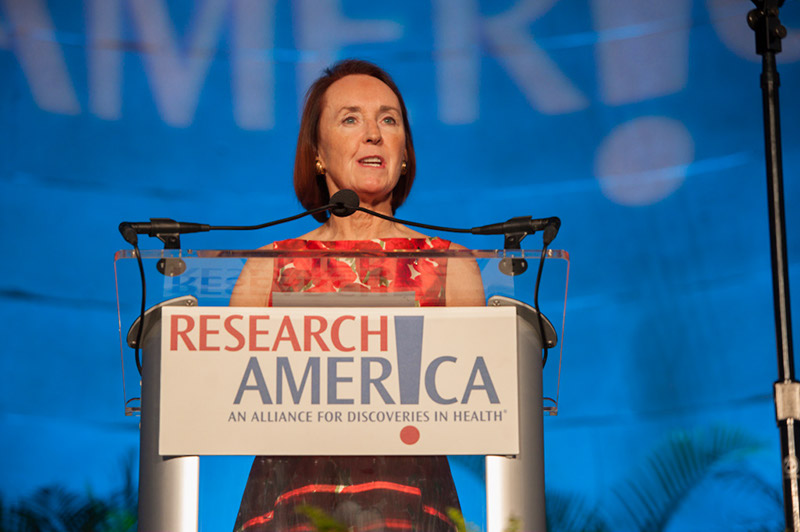Taking Action is the Right Answer


Dear Research Advocate:
Yesterday, the House Budget Committee approved (on a party-line vote, 19-17) legislation that would raise the fiscal year 2020 (FY20) non-defense discretionary (NDD) spending cap by $631 billion, a 5.7 percent increase over the 2019 cap, and raise the defense cap by $664 billion, a 2.6 percent increase. The House is expected to consider the legislation on the floor early next week.
The fact that legislation to raise the caps is being considered signals important progress. Our science-focused Raise the Caps campaign and other individual and collaborative advocacy efforts like that of NDD United are pushing hard for action, because — as Senate Appropriations Chair, Richard Shelby (R- AL) warned earlier this week — failing to act now puts us on the path to “stopgaps” (keep in mind that because of the budget caps, stopgap measures come with deep, across-the-board cuts!)
House Appropriations Chair Nita Lowey is using the #RaiseTheCaps hashtag. The first run of Raise the Caps digital ads in online and print news publications Washington Examiner, Washington Post, Politico, and The Hill garnered nearly 1.7 million impressions! Social media engagement is ramping up as well. Further reach and impact ultimately depends on you; it’s time to act. Here are ways you can help. One particularly important and quick step: sign and share the petition with your networks! Three minutes of your time will make a difference.
As you know, debate over “topline” budget numbers does not preclude the basic appropriations process from moving forward. Senators Bob Casey (D-PA) and Richard Burr (R-NC) are circulating a sign-on letter in support of robust funding for NIH in FY20. If you missed yesterday’s action alert enabling easy outreach to your Senators encouraging them to add their name to this letter, there’s still time! (If you didn’t receive the action alert email, please contact Ellie at [email protected] and we’ll make sure you receive them in the future). Research!America also sent a note to each member of the Senate encouraging their participation.
A new report from the Information Technology and Innovation Foundation (ITIF) makes the case for greatly increased funding for NIH. On Tuesday, April 9, there will be a panel discussion about the report, featuring Research!America board member Dr. Sudip Parikh. More information here.
More on funding: CDC, steward of the US public health system, is dramatically under-resourced considering the weight of its responsibilities and the magnitude of the public health threats we face. It’s National Public Health Week (NPHW) and now is the time to urge your elected representatives to do more to combat our nation’s public health challenges by assuring CDC is fully-funded at $7.8B in fiscal year 2020. Use our CDC fact sheet to make the case!
CDC is one of the key agencies working to combat the opioid crisis. As Research!America board member Alan Leshner so compellingly argued in a recent Science editorial, overcoming this threat will require “science-based, integrated strategies,” combined with a large dose of common sense. Alan describes “the insidious ideology and stigma that have long surrounded the issue of drug use and addiction,” despite the large body of scientific evidence establishing addiction as a medical condition that can be treated.
In past letters, I’ve discussed how important it is for scientists and advocates to play an active role in disempowering misinformation (where the seeds of stigma so often lie). At a conference this week, I learned about combating the phenomenon called the “continued influence effect” or CIE, which is the tendency of misinformation to linger, even in the face of facts. Research in CIE shows that we as a science and advocacy community can help guide conversations back to science-based fact and dispel misinformation by offering an alternative narrative and affirming shared values like fairness and compassion. Check out this National Academies of Science, Engineering, and Medicine (NASEM) resource for insights and inspiration!
Sincerely,
Mary Woolley




